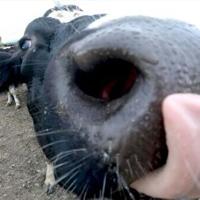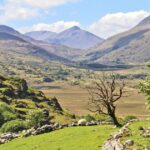New Zealand’s center-right government announced on Tuesday that it will no longer implement a scheme to price greenhouse gas emissions from livestock, effectively eliminating what was referred to as a “burp tax.”
A new legislation will be presented to parliament this month to exclude the agriculture sector from a new emissions pricing plan.
“The government is dedicated to fulfilling our climate change commitments without negatively impacting Kiwi farmers,” stated Agriculture Minister Todd McClay.
McClay added, “It is not logical to transfer jobs and production overseas while less environmentally-friendly countries provide the world’s food supply.”
The agricultural industry is a key driver of the New Zealand economy, with approximately 10 million cattle and 25 million sheep grazing in the nation.
Nearly half of New Zealand’s emissions originate from agriculture, with cattle being the primary contributors.
Cattle release methane through burps and flatulence, while livestock urine emits nitrous oxide into the atmosphere.
The previous center-left Labour government had aimed to address livestock emissions as part of their efforts to achieve net-zero greenhouse gas emissions by 2050.
However, the proposed tax on livestock emissions, introduced by former Prime Minister Jacinda Ardern in 2022, sparked widespread protests by farmers who feared it would impact their profits.
The current center-right government, which took office at the end of last year, has decided to exclude agriculture, animal processors, and fertilizer companies from the emissions pricing plan set to launch in 2025.
The government aims to support farmers in reducing emissions through technology without compromising production or exports, according to the agriculture minister.
A new “pastoral group” will be established to address biogenic methane emissions within the industry.
The decision was well-received by farmers, but environmental organizations criticized the government’s actions, especially as they also announced plans to reverse a five-year ban on new oil and gas exploration.
Greens co-leader Chloe Swarbrick expressed concerns, stating, “The government has essentially disregarded half of our emissions originating from agriculture by placing them in the industry-led ‘too-hard’ basket.”
Greenpeace accused the government of “launching a full-scale attack on nature” by allowing polluting industries like industrial dairy and new oil and gas exploration to further harm the environment.
In addition to this, there were protests in New Zealand’s major cities over the government’s plans to expedite major infrastructure projects by bypassing certain environmental regulations.
ryj/djw/mtp





